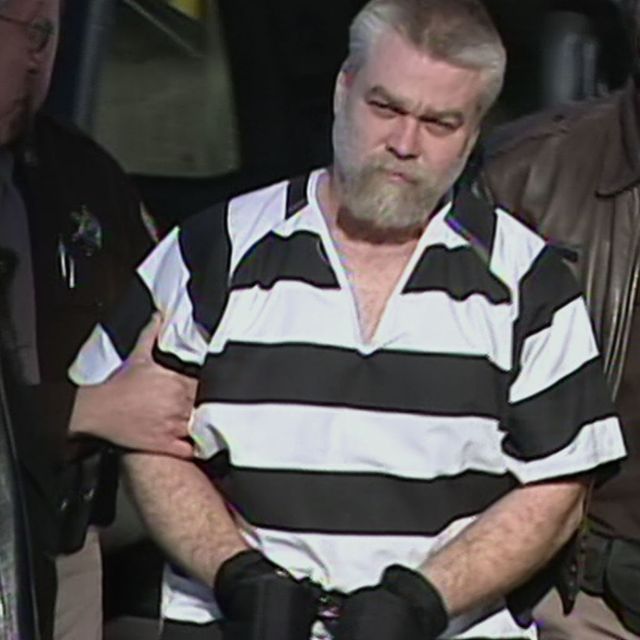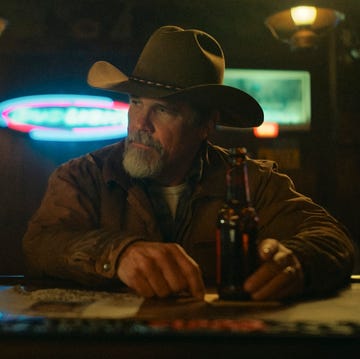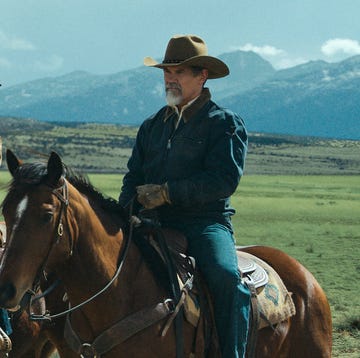Since Netflix aired the first season of its groundbreaking docu-series Making a Murderer, each new development in the case of Teresa Halbach's murder has been greeted with a groundswell of reaction. But none quite like the story this morning that an unidentified inmate had confessed to the crime Steven Avery and his nephew Brendan Dassey have been convicted of. It seemed like there might finally be movement in the cases of the two men, who have maintained their innocence. But the confession raises more questions than it answers.
"I'm not terribly confident in the confession," documentary producer Shawn Rech said in a phone call Tuesday afternoon. For the last 20 months, Rech has been filming a spinoff series about the Halbach case called Convicting a Murderer, which will examine the case the State of Wisconsin built against Avery and Dassey, who are both serving life sentences. For the last 18 months, the inmate who confessed to the murder has been corresponding with the filmmaker. When Rech and his team first got in contact with this inmate it was because the inmate claimed Avery had confessed to the murder of Halbach in their private conversation.
"This man tried to cook Steven Avery's goose even more than it is now," Rech says. "We were trying to debunk that, that was the purpose of our recorded prison phone calls."
But, this inmate's story changed suddenly over the weekend when he said he was the one who killed Halbach, not Avery. The inmate told Rech it was a "tragic accident," the filmmaker says, and that afterwards he panicked and decided to frame the homeowner—and that the site on which it happened was the Avery salvage yard. According to Rech, he has been questioned by the State of Wisconsin Department of Justice which is now investigating the confession.
Rech points out that the inmate, who Rech isn't naming because he doesn't want to interfere with the police investigation, admitted to the crime a week and a half after a $100,000 reward was announced. Rech didn't outright dismiss the confession, however, because he says the inmate is in prison for another murder, and was free at the time of Halbach's death.
"It at least has to be further investigated and it shouldn't be something we should just hang on to, which is why we announced it publicly and why we provided a 9-and-a-half minute digital audio file to both defense attorneys and the Wisconsin Department of Justice," Rech says.
In a statement to Esquire, a Wisconsin Department of Justice spokesperson says, "The Wisconsin Department of Justice has received the new information related to the case. DOJ takes all credible reports seriously, but it’s important to note that this new information directly contradicts information previously provided by the same individual.”
Rech says he's just finishing filming on Convicting a Murderer, which should be complete early next year, and that he is talking to streaming services about picking up the 10-part series. Though Netflix aired Making a Murderer, a representative for the streaming service confirms Convicting a Murderer is not a Netflix production. Rech has been covering criminal justice for years, from Emmy-winning seasons of Crimes Stoppers to the 2014 documentary A Murder in the Park, which examined the case of Anthony Porter, who was on death row until his conviction was vacated in 2014 when a Northwestern professor and his students investigated the case.
The unnamed inmate also reached out to Avery's lawyer, Kathleen Zellner, who featured prominently in Season Two of Making a Murderer but has not yet participated in Rech's series. Zellner did not respond to Esquire's request for comment. Tuesday morning, shortly after Newsweek initially broke the story about the confession Rech obtained, Zellner tweeted, "We received the handwritten confession on Saturday. It is worthless unless it is corroborated #WorkingOnIt #NotsoFast."
Brendan Dassey's lawyer Laura Nirider confirmed in a tweet Tuesday that she was aware of the alleged confession, but declined to comment further.
Dassey confessed to assisting in Halbach's murder when he was 16 years old. His case was overturned in 2016 by a federal judge in Milwaukee after the court found Dassey's confession to be involuntary because of the investigator's deceptive interrogation tactics. But in 2017, the Seventh Circuit reinstated the conviction, with the majority finding that the confession had not been coerced. His lawyers appealed to the Supreme Court which announced last year that it would not hear Dassey's case.













